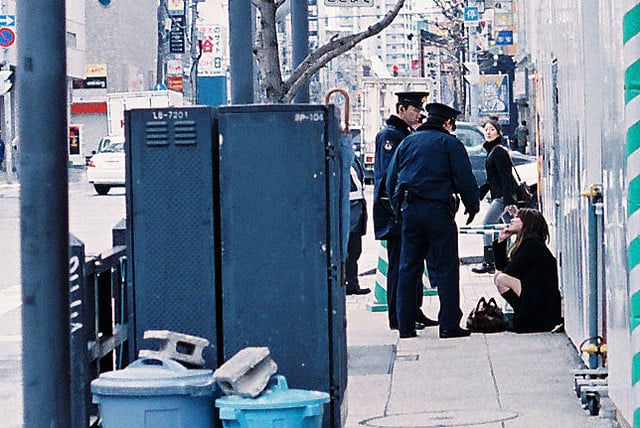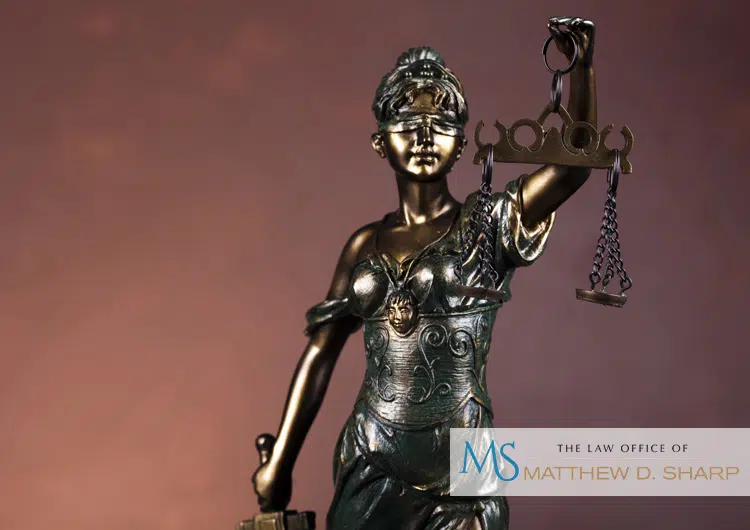Understand the law around Miranda rights so you can protect your rights during an arrest
When people watch police shows on television, they often see this familiar scene: a suspect is placed under arrest, handcuffed, and the arresting officer will recite a list of the suspect’s rights.
But what exactly are these rights and how did they come to be used?
This answer involves a complex legal case, and these rights now play a major role in many criminal cases.
What are Miranda rights?
Miranda rights are used to protect a person who is placed under arrest as well as the officers making the arrest. They are a vital component of the modern justice system, and everyone should be familiar with them.
When a person is arrested, an officer may tell them some form of the following information:
- You are being placed under arrest.
- You have the right to remain silent.
- You have the right to an attorney.
- Anything you say may be used to prosecute you in a court of law.
- If you can’t afford an attorney one will be provided for you.
After reading these rights, the officer may ask the person being arrested if they understand the rights. This entire process is conducted to make sure that the person understands their constitutional rights when they are being taken into police custody.
Contrary to popular belief, the police aren’t required to read Miranda rights whenever they make an arrest.
By law, they are only required to read the Miranda rights if they plan to ask the suspect questions about a criminal case later on. They can even arrest a person, book them into jail and then read them their rights later, before interrogation begins.
How to Keep Your Cool When Speaking with the Police
Learn some tips for talking to police during an interrogation to keep yourself safe and protect your rights.
How do Miranda rights affect an arrest?
Miranda rights primarily affect the admissibility of evidence during the prosecution of a case rather than the arrest itself. When law enforcement officers arrest an individual, they are not required to immediately read Miranda rights at the moment of arrest.
However, if the individual is taken into custody and subjected to interrogation, the rights must be read to ensure the suspect is aware of their constitutional rights to remain silent and to have legal representation.
Failure to provide Miranda warnings before custodial interrogation can lead to any statements made by the suspect during interrogation being deemed inadmissible in court. This can significantly impact the prosecution’s case if their evidence relies heavily on the suspect’s statements.
Thus, while Miranda rights do not directly impact the validity of an arrest, they play a crucial role in the legal process that follows, particularly in how evidence gathered after the arrest can be used in court.
History of Miranda rights
Miranda rights were first introduced in the 1960s. A man named Ernesto Miranda was arrested on charges of kidnapping, rape and robbery in 1966. At that time, police were not required to inform suspects of their rights, and Miranda admitted guilt while being questioned by police.
However, his conviction was later overturned when the police were accused of using coercion and intimidation to get Miranda to confess. Although Miranda’s case was retried and he was eventually convicted, the legacy of his case still stands in the form of the Miranda warnings that police must read before questioning someone about a criminal action.
Innocent Until Proven Guilty & the Presumption of Innocence
Can anyone really be innocent until proven guilty? Learn about the origin of this legal principle and the challenges we face in upholding it today.
FAQs
To answer this question, it’s important to consider how Miranda warnings are used in the real world.
First of all, officers are allowed to stop, detain and question a person if they have a reasonable suspicion that the person is engaged in committing a crime.
For example, if a person is driving drunk and provides a breath sample that is over the legal limit, they can legally be charged, arrested and jailed without ever hearing a Miranda warning.
Police only have to read a person their rights if they plan to interrogate them.
Yes, a police officer can handcuff you without reading your Miranda rights. The requirement to read Miranda rights, which include informing you of your right to remain silent and your right to an attorney, is triggered by specific circumstances—specifically, when an individual is in custody and subject to interrogation.
Handcuffing and detaining someone does not necessarily mean they’re in a situation where they are going to be interrogated. For instance, police might handcuff someone for safety reasons during a traffic stop or while investigating a scene without intending to question them about a crime.
In such cases, the act of handcuffing alone, without interrogation, does not require Miranda warnings to be given.
If police officers do not read Miranda rights to an individual in custody before interrogating them, statements made by that individual during the interrogation may be deemed inadmissible in court.
The Miranda warning is crucial for ensuring that individuals are aware of their rights, including the right to remain silent and the right to have an attorney present during questioning.
In Texas, as in other states, whether a case can be dismissed because Miranda rights were not read depends on the specifics of the case. If law enforcement fails to provide the Miranda warning, any statement or confession obtained as a result may be considered inadmissible in court.
However, this does not automatically mean the entire case will be dismissed.
The impact of not reading Miranda rights primarily affects the admissibility of statements made by the defendant without being informed of their rights to remain silent and to have an attorney.
If critical evidence for the prosecution’s case relies solely on the inadmissible statements, the case could be weakened significantly, potentially leading to a dismissal or reduced charges.
However, if there is other substantial evidence against the defendant that was obtained independently of the statements made without Miranda warnings, the case could still proceed. Ultimately, the decision to dismiss a case based on the failure to provide Miranda warnings would be at the discretion of the judge, taking into consideration all the evidence and circumstances surrounding the case.
If a person believes that their rights have been violated, the best thing to do is to contact a lawyer immediately. A lawyer may be able to provide advice and a legal plan after assessing the facts.
It’s not a requirement to give the police any information, but in some cases, refusing to talk to the police during an arrest could bring charges of interfering with the arrest. Although, if a person is being interrogated by the police, they may claim their right to silence and request a lawyer at any time. When this occurs, all interrogation must stop immediately.
Were you arrested in Houston? Get help from an experienced criminal defense attorney.
Have you recently been arrested? Do you have questions about your Miranda rights?
Don’t leave your freedom up to chance. At The Law Office of Matthew D. Sharp, skilled Houston criminal defense attorney Matt Sharp can review your case and ensure your rights are protected. He’ll explain your legal options and build a strong defense strategy tailored to your specific situation.
Contact his office today for a free consultation.






